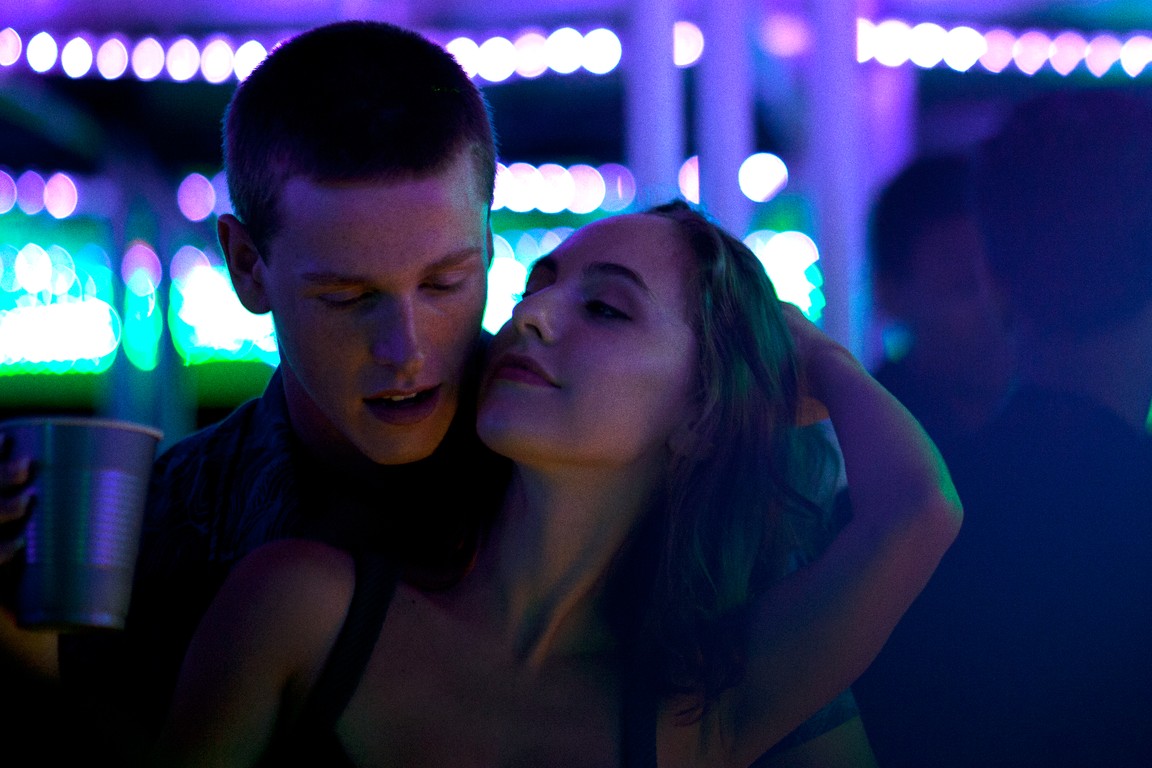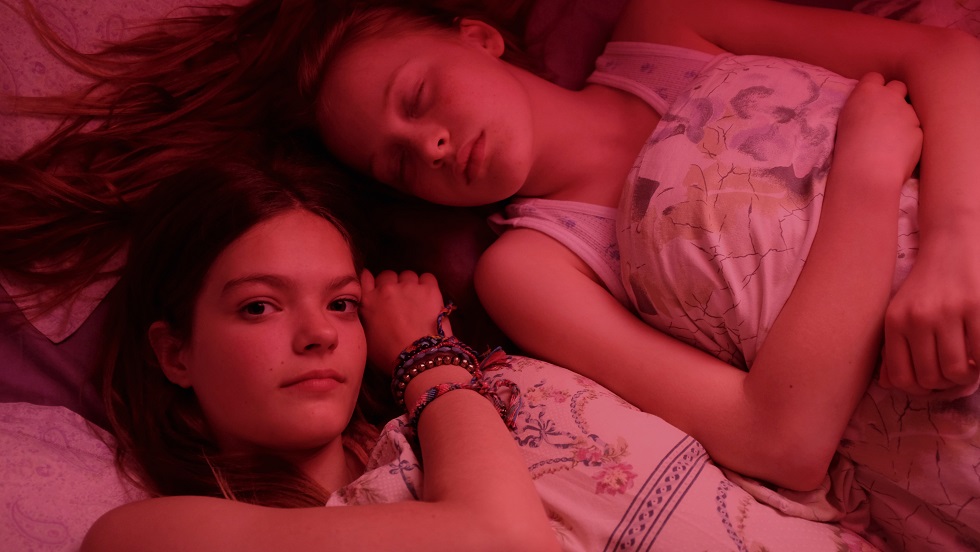DVD: Beach Rats

Limbo over an uneasy Brooklyn summer, from an American indie director to watch
Beach Rats is a film that has “indie” etched in its bones. The second feature from Brooklyn-born Eliza Hittman, it was made with support from New York's independent outfit Cinereach, and went through development at the Sundance Labs. Appropriately, it took that festival's Best Feature Director award last year.
It’s strong on the kind of atmosphere that might easily float into nowhere, but is backed up by a striking performance from British newcomer Harris Dickinson that holds the attention in the subtlest ways. Dickinson plays 19-year-old Frankie, who’s on the cusp of adulthood and apparently coasting through an idle summer in the company of friends. An encounter at the Coney Island fireworks introduces him to Simone (Madeline Weinstein, pictured below, with Dickinson), and initiates a tentative, on-off interaction that also never quite gets anywhere.
But underneath such surfaces the young man's world is considerably darker, reflected in the fact that his father is in the last throes of cancer; he’s dying at home, grief and tension hanging in the air. And Frankie is in the course of discovering his identity, tentatively exploring gay contact websites. But Hittman resists driving Beach Rats in any more standard coming-out narrative direction: rather her concern is with Frankie’s state of increasingly uneasy limbo, emotions suppressed until they come close to crisis in late overlaps with external circumstances. 
Hittman talks, in one of the two short interview extracts that come as extras on this release, of her attempt to get into the mind of a teenager pressured by expectations and circumstances (her first film, It Felt Like Love, was a story of female adolescence, so this is both new and familiar territory for her). Frankie’s reticence and uncertainty – “I don’t really know what I like” is a phrase he repeats through the film – means that the changes and charges of emotion are shown in the smallest of gestures.
Dickinson’s striking features are richly expressive of such nuances, and they are beautifully caught by French cinematographer Hélène Louvart’s subtle textures, which also capture the languid summertime atmosphere of the remoter edges of Brooklyn (it’s the director's home territory, very different from the trendier neighbourhoods of the borough we are more used to on screen). The film seems somehow removed from time (no mobile phones), and Hittman creates the fabric of its world beautifully. She draws absolutely natural performances from a mainly non-professional cast – Frankie’s three beach-side companions, as well as his younger sister (Nicole Flyus) – and a deeply insightful role from Kate Hodge as his mother.
It’s a world in which no one intends wrong, but things go wrong. Frankie himself acutely realises his own shortcomings, but the director isn’t interested in judging him. No doubt he will one day reach resolution of some sort, but for now Hittman is honest enough not to suggest answers. Expect to hear much more both of her, and of her star.
Overleaf: watch the trailer for Beach Rats










 But this is also nature, in the sheer physical sense, at its most impressive (pictured above). The craggy coast around the cluster of houses that makes up the isolated village rises up towards spectacular mountains, which somehow dwarf any human activity with their scale. In summer, as the light stretches around the clock, the beauty is awesome, memorably captured in Norwegian cinematographer Sturla Brandth Grøvlen’s widescreen vistas. But we sense that when winter comes – Heartstone closes as the first dusting of snow falls – the cold isolation of the place will be as complete as the luminous airiness with which it seasonally alternates.
But this is also nature, in the sheer physical sense, at its most impressive (pictured above). The craggy coast around the cluster of houses that makes up the isolated village rises up towards spectacular mountains, which somehow dwarf any human activity with their scale. In summer, as the light stretches around the clock, the beauty is awesome, memorably captured in Norwegian cinematographer Sturla Brandth Grøvlen’s widescreen vistas. But we sense that when winter comes – Heartstone closes as the first dusting of snow falls – the cold isolation of the place will be as complete as the luminous airiness with which it seasonally alternates. The father has gone off with a younger woman, and any sympathy for their mum's tentative attempts to find someone to date in this backwater is notably lacking. We see what it involves for her when the adults get together for the village-hall dance – a thrash, if ever there was one – and her attention falls on the outsider Sven (Søren Malling, a visitor in every sense: he’s Torben, from Borgen). Nevertheless there’s a sense of tough-love affection in this family unit that is finally reassuring, as well as an element of comedy to the sisters, Hafdis (Ran Ragnarsdottir) particularly; she writes poetry of Plath-like intensity that she reads out at meals.
The father has gone off with a younger woman, and any sympathy for their mum's tentative attempts to find someone to date in this backwater is notably lacking. We see what it involves for her when the adults get together for the village-hall dance – a thrash, if ever there was one – and her attention falls on the outsider Sven (Søren Malling, a visitor in every sense: he’s Torben, from Borgen). Nevertheless there’s a sense of tough-love affection in this family unit that is finally reassuring, as well as an element of comedy to the sisters, Hafdis (Ran Ragnarsdottir) particularly; she writes poetry of Plath-like intensity that she reads out at meals.